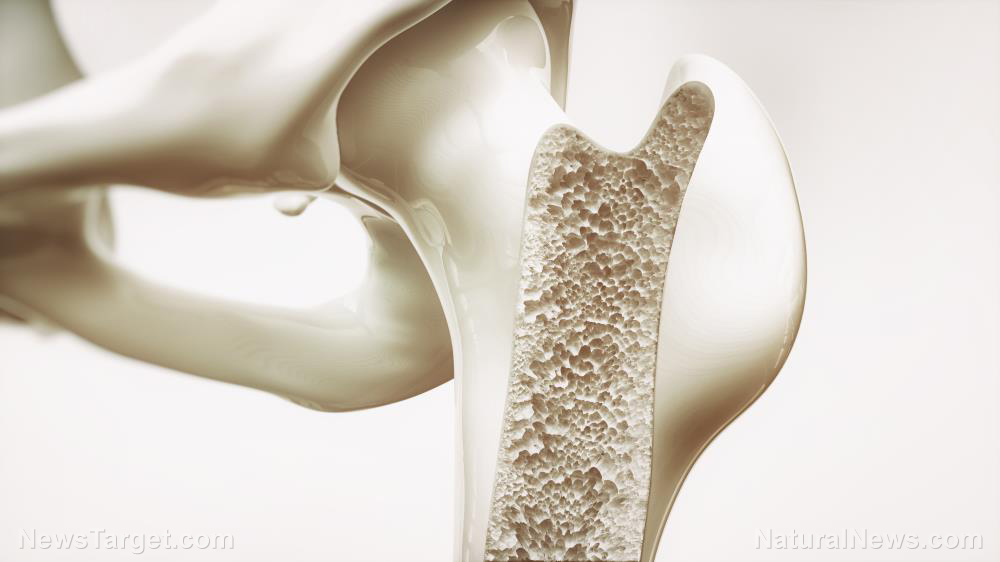
Older people need conventional foods, fortified foods, and supplements to meet their micronutrient requirement
The researchers hypothesized that, by knowing how conventional foods (e.g., whole grains, vegetables, and low-fat dairy products), fortified foods, and dietary supplements differ in their contributions to total dietary intakes, new measures can be taken to ensure that the nutritional needs of older people are met. This will also reduce their chances of developing preventable diseases that are caused by vitamin or mineral deficiency. (Related: Vitamins D, E and zinc significantly boost immune strength among older people.)
To examine the micronutrient intake of Dutch elderly, the researchers analyzed data from 245 Dutch volunteers aged 65 to 80 who were involved in a previous cohort study. The researchers assessed the volunteers' dietary intake by means of seven-day food records and recorded their use of dietary supplement using an additional questionnaire. The researchers obtained information on fortified foods from the Dutch Food Composition Table 2011. They evaluated the nutrient density of foods using the Nutrient Rich Food 9.3 score.
Upon examining conventional foods intake in the elderly, the researchers found that:
- 99 percent were deficient in vitamin D
- 41 percent were deficient in selenium
- 54 percent were deficient in vitamin B6
When they took the consumption of fortified foods into account, they found that:
- 98 percent were still deficient in vitamin D
- 41 percent were still deficient in selenium
- 27 percent were still deficient in vitamin B6
When they took vitamin and mineral supplementation into account, they found that:
- 87 percent were still deficient in vitamin D
- 36 percent were still deficient in selenium
- 20 percent were still deficient in vitamin B6
They also noted that for vitamin D intake:
- 42 percent obtained it from conventional foods
- 41 percent obtained it from supplements
- 17 percent obtained it from fortified foods
For vitamin B6:
- 45 percent obtained it from conventional foods
- 44 percent obtained it from supplements
- 11 percent obtained it from fortified foods
For selenium:
- 82 percent obtained it from conventional foods
- 18 percent obtained it from supplements
- 1 percent obtained it from fortified foods
Considering the data, the researchers reported that the nutrient intake of Dutch elderly, particularly vitamin D, was inadequate, and they expressed concern about their intakes of vitamin B6 and selenium. They recommended a combination of natural food sources, fortified foods, and dietary supplements to optimize nutrient intake.
Vitamin D, vitamin B6, and selenium: Their functions and their sources
Vitamin B6, also known as pyroxidine, is a water-soluble vitamin involved in many enzymatic reactions, particularly in protein, fat, and carbohydrate metabolism. It also plays a role in cognitive development and in the prevention of mental disorders, such as depression and anxiety, and chronic diseases. According to the National Institutes of Health, the recommended dietary allowance (RDA) for vitamin B6 is 1.7 mg for males and 1.5 mg for females who are 51 years old and above. Foods that can supply vitamin B6 are chickpeas, beef liver, salmon, breakfast cereals, potatoes, cottage cheese, white rice, nuts, onions, and spinach.
Vitamin D is a fat-soluble vitamin that can be synthesized by the body in response to ultraviolet rays from sunlight. Vitamin D is involved in calcium absorption and the maintenance of calcium and phosphate serum levels. Osteoblasts and osteoclasts also require vitamin D during the process of bone formation and for bone remodeling. Vitamin D also helps protect older adults from osteoporosis. The RDA for vitamin D is 600 IU for both males and females 51 years old and above, and 800 IU for people older than 70. Good sources of vitamin D are fatty fish and fish liver oils, as well as dairy products fortified with 100 IU vitamin D per cup.
Selenium is an essential mineral that can only be obtained from food. It is necessary for important processes, such as thyroid hormone metabolism, reproduction, and DNA synthesis. Selenium deficiency can cause infertility, muscle weakness, fatigue, and hair loss. It can also weaken the immune system. The RDA for selenium is 55 micrograms (mcg) for males and females 51 years old and above. It can be obtained from tuna, halibut, sardines, shrimp, chicken, brown rice, eggs, whole-wheat bread, oat meals, spinach, lentils, cashew nuts, carrots, peaches, and lettuce. It can also be taken in supplement form.
Sources include:
Please contact us for more information.






















